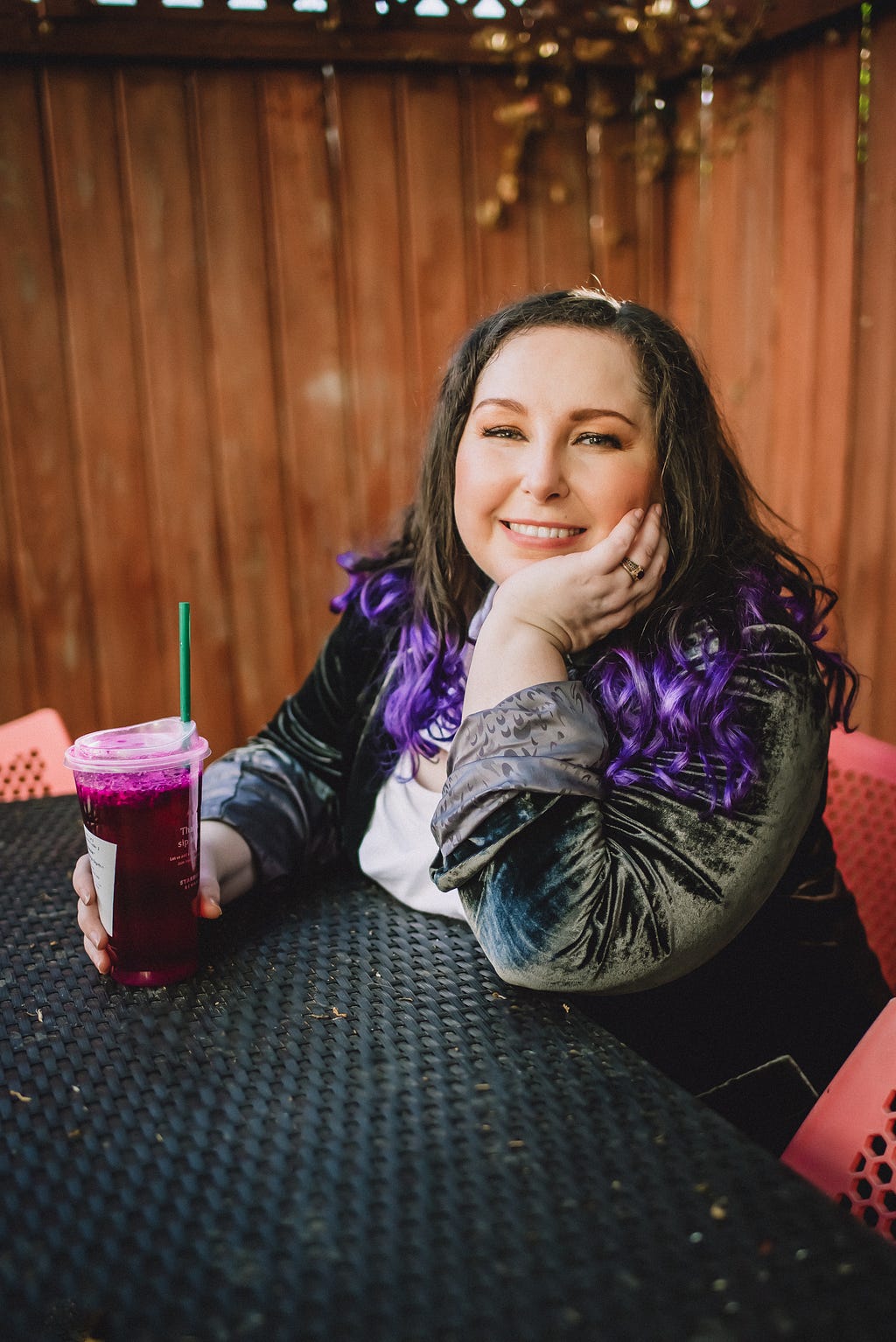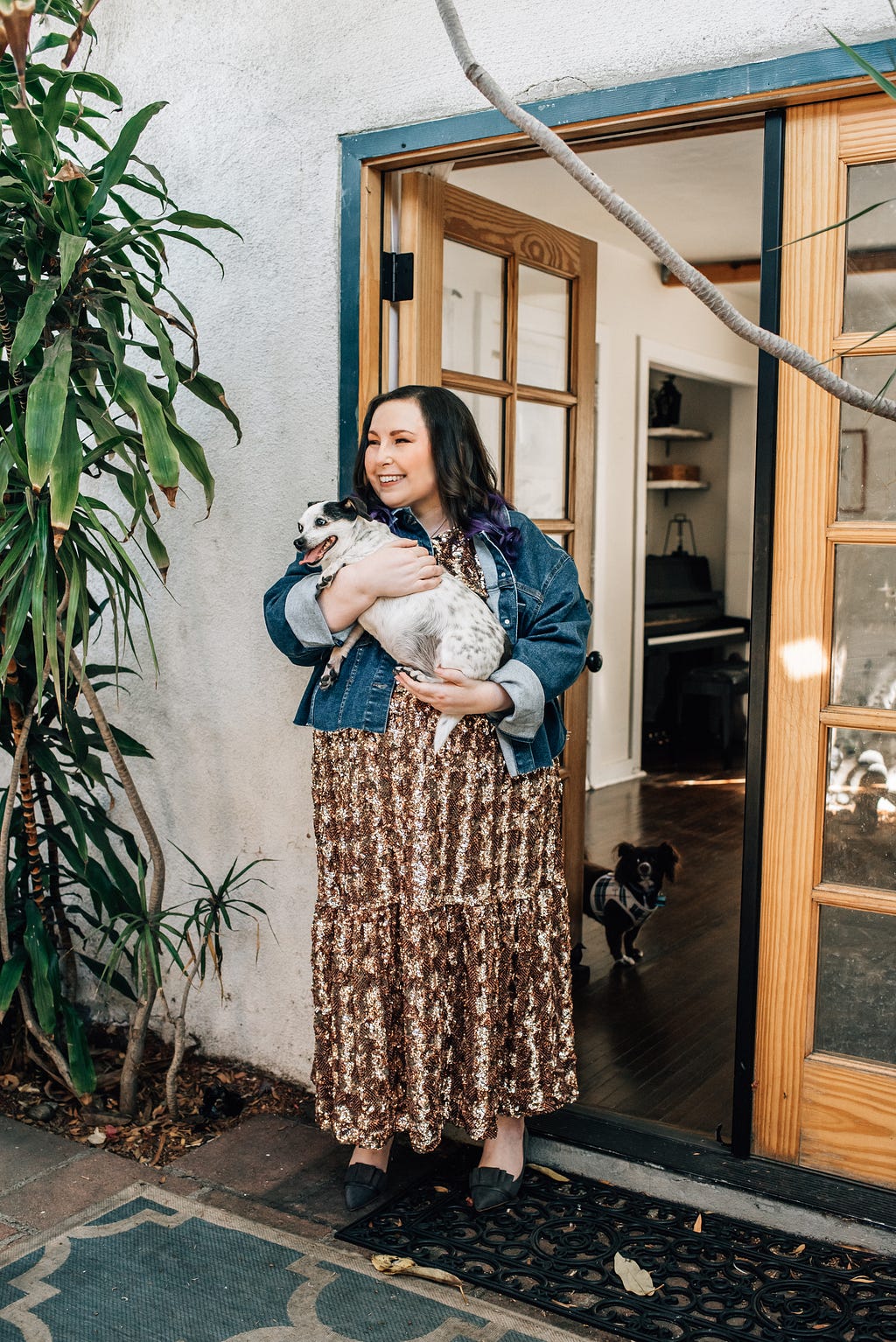
Educate Yourself: Learn about eating disorders from a body neutrality and fat positivity perspective. Understand the harmful impacts of diet culture.
Eating disorders are complex mental health conditions that affect millions worldwide, transcending age, gender, and cultural boundaries. They are not simply about food but involve a range of psychological, physical, and social issues. Supporting a loved one through this struggle can be challenging, requiring understanding, patience, and knowledge of the right approaches to truly make a difference.
In this series, we aim to shed light on the most effective ways to offer support, understanding, and hope to those battling an eating disorder. We are talking to psychologists, nutritionists, doctors, therapists, and survivors, who can provide valuable perspectives on nurturing recovery, fostering resilience, and promoting healthy relationships with food and body image. As a part of this series, we had the pleasure of interviewing Dr. Natalie Feinblatt.
Dr. Natalie Feinblatt is a Los Angeles-based therapist specializing in addiction, trauma, and co-occurring disorders. She provides therapy services to individuals looking to overcome personal challenges and improve their mental health and well-being. With a focus on supporting creative professionals, Dr. Feinblatt’s practice offers a compassionate and understanding approach to therapy, helping clients navigate life’s complexities.
Thank you so much for joining us in this interview series. Before we dive into our discussion, our readers would love to “get to know you” a bit better. Can you share with us the backstory about what brought you to your specific career path?
My journey into the field of therapy was significantly shaped by my own experiences with mental health challenges and the impact of positive experiences with therapy. These personal struggles not only fostered a deep empathy within me but also illuminated the transformative power of compassionate, understanding therapeutic support. This realization steered me towards a career path where I could offer similar support and empowerment to others.
Can you please give us your favorite “Life Lesson Quote”? Can you share how that was relevant to you in your life?
One of Viktor Frankl’s powerful quotes from “Man’s Search for Meaning” is, “When we are no longer able to change a situation, we are challenged to change ourselves.” This quote resonates deeply with me, highlighting the realization that our power often lies not in altering the external circumstances but in transforming our internal perspective and reactions. In both my personal journey and professional practice, embracing this mindset has been pivotal, encouraging growth, resilience, and the ability to find meaning and purpose, even in the face of life’s inevitable challenges.
Are you working on any exciting new projects now? How do you think that will help people?
I’m currently focusing on transforming my private practice to create a more sustainable work environment that minimizes burnout. This shift is designed to enhance my well-being, allowing me to be more present, engaged, and effective as a therapist for my clients. By prioritizing self-care and setting boundaries, I’m setting a foundation that not only supports my longevity in this profession but also ensures that I can offer the highest quality of care to those I work with.
According to this study cited by the National Association of Anorexia Nervosa and Associated Disorders, at least 30 million people in the U.S. of all ages and genders suffer from an eating disorder. Can you suggest 3–5 reasons why this has become such a critical issue recently?
The critical issue of eating disorders affecting millions can be attributed to several interconnected factors, prominently including diet culture, fatphobia, and social media influences. Diet culture, with its relentless promotion of thinness as the ideal body type, contributes significantly by perpetuating unhealthy eating habits and body dissatisfaction. Fatphobia exacerbates this by stigmatizing body weight and shape, leading to shame and unhealthy food and exercise behaviors. Additionally, the pervasive nature of social media often amplifies these issues, presenting unrealistic body standards and reinforcing negative self-perception and comparison.
Based on your insight, what can concrete steps can a) individuals, b) corporations, c) communities and d) leaders do to address the core issues that are leading to this problem?
To address the core issues leading to eating disorders:
a) Individuals can educate themselves on fatphobia, strive for body neutrality, and challenge societal norms around bodies.
b) Corporations should promote diverse body representations, avoid weight-based discrimination, and support body-positive initiatives.
c) Communities can create inclusive spaces that celebrate body diversity and offer support for those struggling with body image.
d) Leaders can advocate for policies that address the root causes of fatphobia and diet culture, and ensure accessible mental health services that don’t pathologize fatness.
As you know, one of the challenges of an eating disorder is the harmful,and dismissive sentiment of “why can’t you just control yourself”. What do you think needs to be done to make it apparent that an eating disorder is an illness just like heart disease or schizophrenia?
Elevating awareness through education that eating disorders are complex illnesses involving biological, psychological, and social factors is crucial. This can be done by incorporating comprehensive education into school curriculums, launching public health campaigns that challenge misconceptions, and encouraging media to portray eating disorders accurately. Health professionals can advocate for treating eating disorders with the same seriousness as other illnesses, emphasizing that it’s not about willpower but a need for professional support and understanding.

Can you please share with our readers 5 ways to support a loved one who is struggling with an eating disorder? If you can, can you share an example from your own experience?
- Educate Yourself: Learn about eating disorders from a body neutrality and fat positivity perspective. Understand the harmful impacts of diet culture.
- Listen Actively: Provide a non-judgmental space for them to share their feelings and experiences without pushing them to change.
- Challenge Stigmas: Gently confront fatphobic and diet-centric comments or behaviors in social settings to foster a more inclusive environment.
- Encourage Professional Support: Support them in finding therapists or support groups that uphold anti-diet, fat neutral values.
- Model Body Positivity: Demonstrate body acceptance and challenge diet culture in your own behaviors and conversations.
How do you navigate the balance between offering support and respecting the autonomy of a loved one with an eating disorder?
Navigating the balance between support and autonomy involves active listening, affirming their feelings without pushing solutions, and encouraging them in decision-making processes about their treatment and recovery journey. Offer information and resources related to body neutrality but allow them to set the pace for change. It’s about being present and supportive while respecting their right to make choices about their body and health.
Is there a message you would like to tell someone who may be reading this, who is currently struggling with an eating disorder?
If you’re struggling with an eating disorder, know that you are deserving of seeking and receiving professional help. Confronting diet culture and fatphobia may feel daunting, but embracing this journey can lead to profound healing and self-discovery. It’s a path worth exploring for your well-being and authenticity. Remember, you are not alone, and support is available to guide you toward a more compassionate relationship with yourself and your body.
In your experience, what are the most effective strategies for building resilience and a positive self-image in individuals recovering from an eating disorder?
In my work, while I don’t specialize directly in treating eating disorders, I support clients in building resilience and a positive self-image by challenging fatphobia and promoting body neutrality. This approach involves questioning societal norms around bodies, embracing diversity in body shapes and sizes, and fostering an environment where all bodies are valued equally. By working through these perspectives, clients can develop a healthier relationship with their bodies and selves, contributing significantly to their recovery and overall well-being.
What are your favorite books, podcasts, or resources that have helped people with this struggle? Can you explain why you like them?
Two podcasts I highly appreciate for those navigating body image and eating disorders are “Maintenance Phase” and “Food Psych.” “Maintenance Phase” offers a critical view on wellness culture and diet myths, providing listeners with a more nuanced understanding of health. “Food Psych,” hosted by Christy Harrison, explores intuitive eating, body positivity, and recovery from diet culture, making it a vital resource for anyone looking to foster a healthier relationship with food and their body. Additionally, “The Emotional Eating, Chronic Dieting, Binge Eating & Body Image Workbook” by Judith Matz is a valuable tool, offering practical strategies and insights for dealing with emotional eating, improving body image, and moving away from chronic dieting. These resources stand out for their commitment to debunking harmful myths and supporting individuals in their journey towards self-acceptance and health beyond conventional dieting paradigms.
You are a person of great influence. If you could inspire a movement that would bring the most amount of good to the largest amount of people, what would that be? You never know what your idea can trigger. 🙂
Helping to take fat liberation mainstream would be a transformative movement, challenging societal norms around body size and advocating for equality, respect, and dignity for all bodies. This movement would aim to dismantle systemic fatphobia, promote body neutrality, and ensure that individuals of all sizes have access to equitable opportunities and treatment. By fostering a society that values individuals for who they are rather than their appearance, we could create a more inclusive, compassionate, and healthy community for everyone.
How can our readers continue to follow your work online?
They can follow me on Instagram @healingwithdrnatalie or check out my website at https://drnataliefeinblatt.com/
Thank you so much for these insights! This was so inspiring!
Dr Natalie Feinblatt On How To Support A Loved One Who Is Struggling With An Eating Disorder was originally published in Authority Magazine on Medium, where people are continuing the conversation by highlighting and responding to this story.
